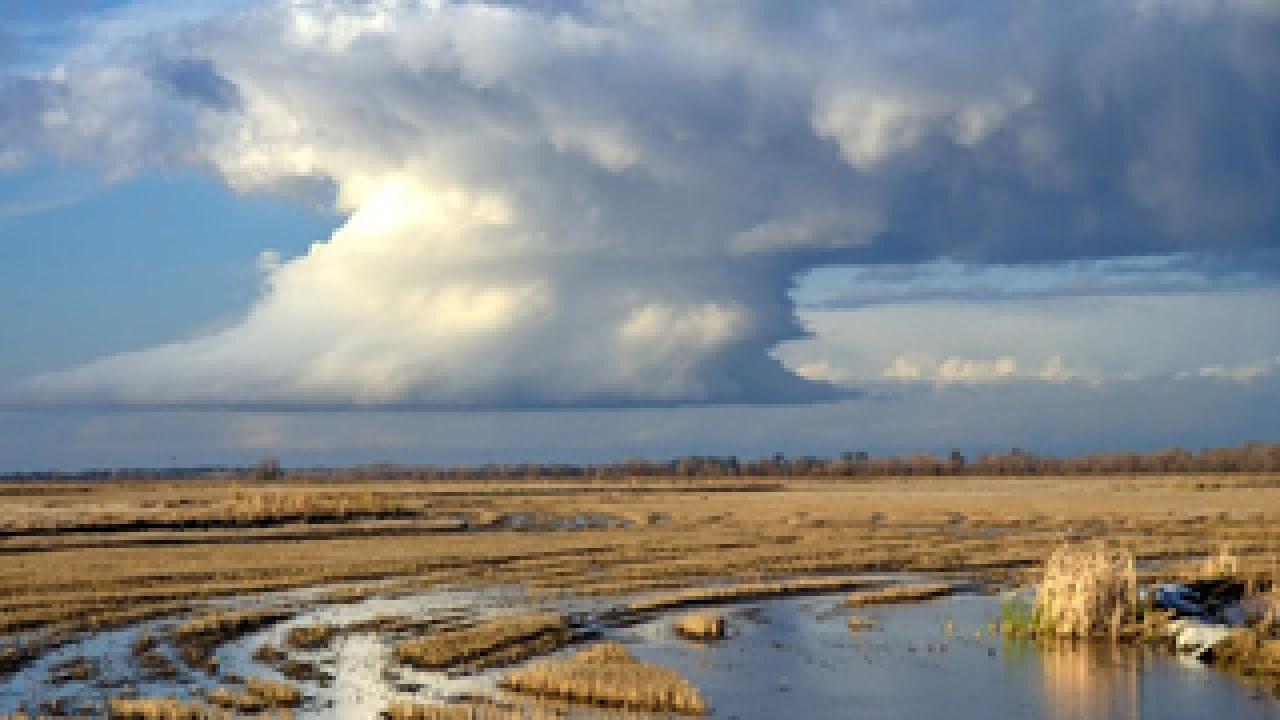Scientists and policymakers from around the world will gather Wednesday through Friday, March 20-22, at the University of California, Davis, to grapple with the threats of climate change for global agriculture and recommend science-based actions to slow its effects while meeting the world's need for food, livelihood and sustainability.
The Climate-Smart Agriculture Global Science Conference, planned in coordination with the World Bank, builds on a 2011 international meeting on this theme in the Netherlands.
"Climate change, which brings severe weather events and more subtle but equally menacing temperature changes, presents unprecedented challenges to the global community," said UC Davis Chancellor Linda P.B. Katehi.
"In California, where we rely heavily on snowmelt for irrigation to grow half of our nation's fruit and vegetables, we are acutely aware that scientists and policymakers must join forces to lessen the potential effects of climate change," she said.
Katehi will open the conference on Wednesday, March 20, along with Thomas Vilsack, secretary of the U.S. Department of Agriculture (via video). The public is invited to attend the opening day’s program (8:45 a.m.-12:30 p.m), free of charge; and the closing day’s afternoon program (noon-3:45 p.m.), also free of charge. These will be held in Jackson Hall of the Mondavi Center for the Performing Arts. (Lunches not included.)
Catherine Woteki, USDA undersecretary, will speak Thursday evening, March 21.
Other speakers will include: Ben Santer, climate researcher at Lawrence Livermore National Laboratory and a member of the National Academy of Sciences; Joseph Alcamo, chief scientist for the United Nations Environmental Program; and Patrick Caron, general director for research and strategy of the French Agricultural Research Center for International Development. Also speaking will be outstanding scientists from dozens of universities and research institutes from around the world.
Conference topics will focus on the implications of cutting-edge agricultural, ecological and environmental research for improved design of policies and actions affecting agricultural management and development; identifying farm and food-system issues, determining research gaps; highlighting emerging research initiatives; and developing transformative policies and institutions.
The conference will conclude with participants developing and endorsing a declaration regarding the key research and policy messages that result from conference presentations and discussions. This declaration is expected to point toward science-based policies and actions for global agriculture that will mitigate climate change and encourage adaptation to maintain food security, livelihoods and biodiversity.
A reception will precede the conference on the evening of Tuesday, March 19, and a tour of climate-related research at UC Davis and on nearby farms is scheduled for conference participants following the conference on Saturday, March 23, from 8:30 a.m. to 2 p.m.
Individual media visits to UC Davis research sites can be arranged by contacting Pat Bailey or Kat Kerlin of the UC Davis News Service at pjbailey@ucdavis.edu or kekerlin@ucdavis.edu.
News media members planning to attend the conference must register, although the conference fee will be waived for working press. Online registration.
About UC Davis
UC Davis is located between San Francisco and Sacramento in the heart of California's agriculturally rich Central Valley. For more than 100 years, UC Davis has engaged in teaching, research and public service that matter to California and transform the world. Located close to the state capital, UC Davis has more than 33,000 students, more than 2,500 faculty and more than 21,000 staff, an annual research budget of nearly $750 million, a comprehensive health system and 13 specialized research centers. The university offers interdisciplinary graduate study and more than 100 undergraduate majors in four colleges — Agricultural and Environmental Sciences, Biological Sciences, Engineering, and Letters and Science. It also houses six professional schools: Education, Law, Management, Medicine, Veterinary Medicine and the Betty Irene Moore School of Nursing.
Media Resources
Pat Bailey, Research news (emphasis: agricultural and nutritional sciences, and veterinary medicine), 530-219-9640, pjbailey@ucdavis.edu
Kat Kerlin, 530-750-9195, kekerlin@ucdavis.edu
